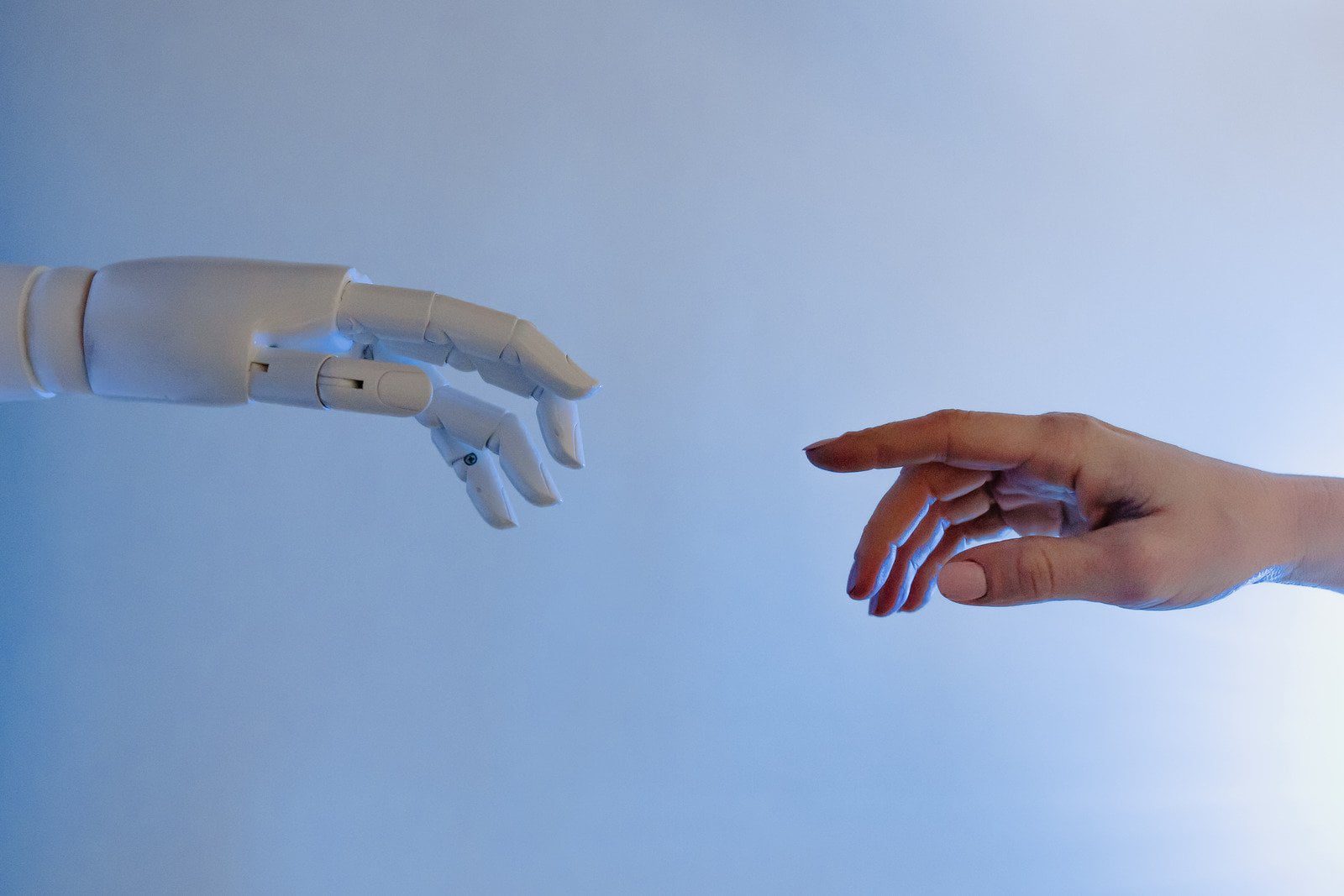Welcome to a world where technology is reshaping traditional industries, revolutionizing the way we live, work, and interact. From healthcare to education, business to transportation, and beyond – the impact of technological advancements is profound. Join us on this captivating journey as we explore how tech is transforming industries in ways we never thought possible. Let’s delve into the exciting realm of innovation and change brought about by the power of technology!
Technological Innovations in the Healthcare Industry
The healthcare industry is experiencing a profound transformation thanks to cutting-edge technological innovations. One such innovation is telemedicine, which allows patients to consult with healthcare providers remotely, improving access to care for individuals in remote areas and those with mobility limitations.
Artificial Intelligence (AI) is another game-changer in healthcare, assisting in diagnosing diseases, personalizing treatment plans, and even predicting patient outcomes with remarkable accuracy.
Wearable devices like smartwatches and fitness trackers are empowering individuals to monitor their health metrics in real-time and take proactive steps towards wellness. These gadgets provide valuable data that can aid in early detection of health issues.
Furthermore, the use of virtual reality (VR) technology is revolutionizing medical training by offering realistic simulations for students and professionals alike. This immersive experience enhances learning effectiveness while reducing risks associated with traditional training methods.
Innovations such as 3D printing have also made significant strides in healthcare by enabling the creation of customized prosthetics, implants, and even human tissue for transplantation purposes. The possibilities seem endless as technology continues to push boundaries within the healthcare sector.
How Technology is Changing the Education Sector
Technology has fundamentally transformed the way education is delivered and consumed. With the rise of online learning platforms, students now have access to a wealth of resources at their fingertips. Virtual classrooms and video conferencing tools have made it possible for individuals to learn from anywhere in the world.
Interactive e-books and educational apps have revolutionized traditional textbooks, making learning more engaging and interactive. Additionally, AI-powered tutors can provide personalized learning experiences tailored to each student’s needs and pace.
The use of virtual reality (VR) and augmented reality (AR) technologies has brought subjects to life in ways previously unimaginable, enhancing student engagement and understanding. Furthermore, data analytics tools allow educators to track student progress more effectively and tailor teaching methods accordingly.
As technology continues to advance at a rapid pace, we can expect even more innovative solutions to emerge in the education sector, shaping the future of learning for generations to come.
The Influence of Tech on Business and Entrepreneurship
In today’s fast-paced world, technology has significantly impacted the landscape of business and entrepreneurship. With the rise of e-commerce platforms and digital marketing tools, businesses can now reach a global audience with ease. Entrepreneurs are leveraging data analytics to make informed decisions and streamline operations.
Tech advancements like AI and automation have revolutionized how companies operate by increasing efficiency and reducing costs. Startups are embracing cloud computing to scale their businesses rapidly without the need for hefty infrastructure investments.
The emergence of fintech solutions has transformed traditional banking services, making transactions quicker and more secure. Entrepreneurs are tapping into crowdfunding platforms to raise capital for innovative projects, bypassing traditional funding methods.
Technology continues to shape the way businesses strategize, innovate, and grow in an ever-evolving marketplace.
The Role of Technology in Transportation and Logistics
Technology has completely transformed the way transportation and logistics operate. With the rise of AI, companies can optimize routes, reduce fuel consumption, and enhance driver safety. Real-time tracking systems provide accurate location data for efficient supply chain management. Drones are revolutionizing last-mile delivery by speeding up the process in congested areas.
Self-driving vehicles are on the horizon, promising to increase efficiency while decreasing human error. The Internet of Things (IoT) enables seamless communication between different components in a logistics network, ensuring smooth operations throughout the entire process. Blockchain technology is enhancing security and transparency within supply chains by providing an immutable record of transactions.
Technology continues to play a vital role in streamlining transportation and logistics operations, leading to cost savings and improved customer satisfaction across various industries.
Advancements in Manufacturing and Production Processes
The manufacturing and production sector has undergone significant transformations due to technological advancements. Automation and robotics have revolutionized the way goods are produced, leading to increased efficiency and precision in manufacturing processes.
3D printing technology has opened up a world of possibilities, allowing for rapid prototyping and customization of products. This innovation has streamlined the production process, reducing lead times and costs while improving overall quality.
The integration of artificial intelligence (AI) in manufacturing has enabled predictive maintenance, optimized supply chain management, and enhanced decision-making processes. AI-powered systems can analyze data in real-time to identify areas for improvement and drive operational excellence.
Furthermore, the Internet of Things (IoT) has facilitated seamless communication between machines on the factory floor, enabling smart factories that can self-diagnose issues and adapt to changing demands swiftly.
As we continue to witness these advancements unfold, it is clear that technology will play an increasingly vital role in shaping the future of manufacturing industries worldwide.
Challenges and Concerns Surrounding Technological Revolution
As technology continues to revolutionize industries, there are inevitable challenges and concerns that come with the rapid pace of innovation. One major issue is the potential displacement of jobs due to automation and artificial intelligence. Many fear that machines will replace human workers, leading to unemployment and economic instability.
Moreover, cybersecurity threats have become a growing concern as more sensitive data is stored digitally. With the rise of cyber attacks and data breaches, protecting valuable information has become a top priority for businesses across all sectors.
Another challenge is the ethical implications surrounding emerging technologies such as biotechnology and genetic engineering. Questions about privacy, consent, and manipulation arise as these advancements push boundaries in what was once thought possible.
Additionally, there’s a digital divide that persists globally, where underprivileged communities lack access to essential technological resources. This disparity can widen existing inequalities and hinder progress for those who need it most.
Navigating through these challenges requires careful consideration and proactive measures to ensure that technological advancements benefit society as a whole while addressing concerns along the way.
Future Predictions for the Integration of Tech in Industries
As we look ahead to the future, one thing is certain: technology will continue to revolutionize industries across the board. From healthcare and education to business, transportation, and manufacturing, the integration of tech is inevitable.
In the coming years, we can expect even more advanced AI systems in healthcare that can diagnose diseases more accurately and efficiently. Education will see a shift towards personalized learning experiences through virtual reality and artificial intelligence. Businesses will increasingly rely on data analytics for decision-making, while transportation and logistics will benefit from autonomous vehicles and smart infrastructure.
Manufacturing processes will become more streamlined with the adoption of robotics and 3D printing technologies. However, as we embrace these advancements, it’s crucial to address concerns surrounding data privacy, cybersecurity threats, job displacement due to automation.
The future holds endless possibilities for how technology will shape industries worldwide. By staying agile and adaptable in this rapidly evolving landscape, businesses can harness the power of tech to drive innovation forward and create a brighter tomorrow for all.
















